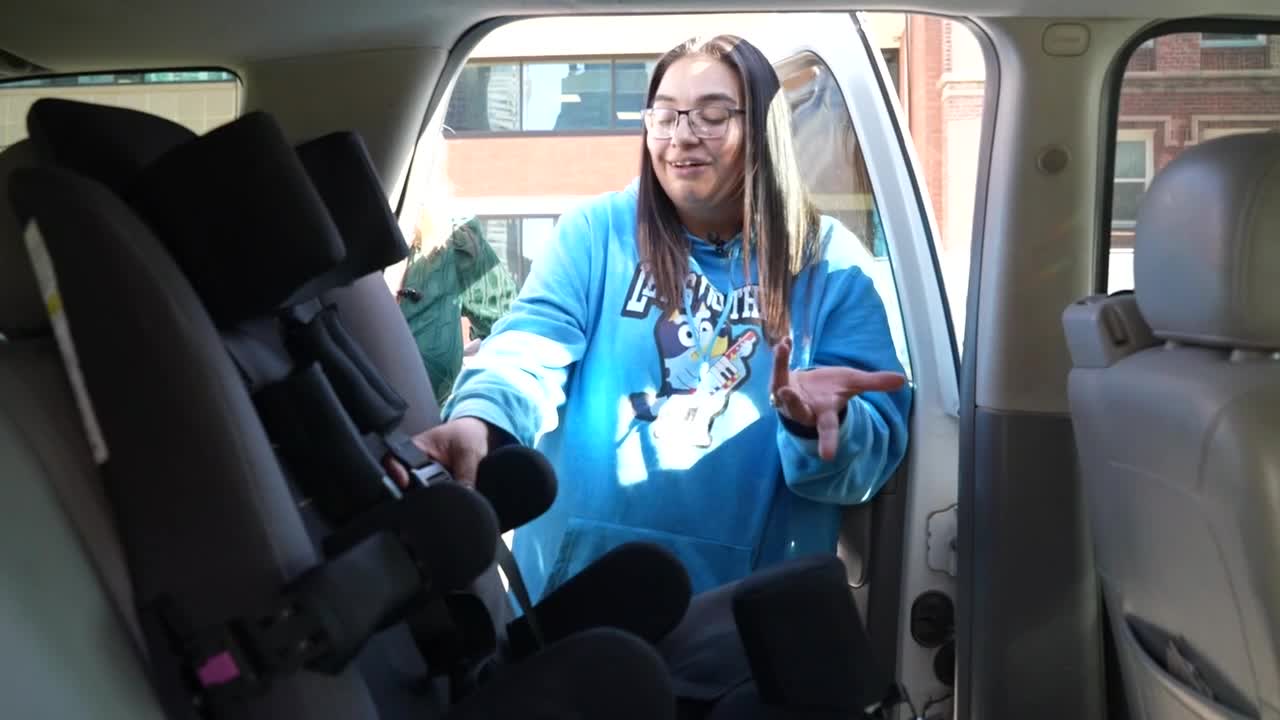DENVER — Raya Bernal’s 7‑year‑old son kept escaping from his car seat while she was driving on the highway. Her son's doctor recommended a crash‑tested adaptive seat that could keep him safe — but when she asked Colorado Medicaid to cover it, the state said no, calling the equipment “unsafe.”
“It got to that point where we were just not able to drive safely, even to go the grocery store,” Bernal said.
Her son, diagnosed with autism in 2021, learned to unclip himself and “hulk” his way free — sometimes while driving down the highway.
The specialized seat her son's medical professionals recommended uses escape‑proof buckles and extra harnessing to meet federal crash‑test standards. It came with a price tag of more than $4,000.
When her doctor and therapists submitted the paperwork, the denial letter came back: “Prior authorization request denied.”

And Bernal isn't the only one to get such a letter. Colorado Legal Services told Denver7 Investigates that the organization has attempted to help multiple families who have been denied car seats by the state's Medicaid system. But there is hope for these families, as the state is overturning some of these decisions after appeals and is updating its policy.
Experts push back
Child passenger safety technician Britney Lombard told Denver7 Investigates that claims of unsafe equipment do not hold up.
“This is an entirely different case than unapproved products you might find online,” Lombard said. “We’re talking about legitimate car seat brands that meet NHTSA standards, that meet the federal crash testing standards.”
A wider pattern
Colorado Legal Services attorney Kate Gladson told Denver7 Investigates that Bernal is one of multiple cases they've taken part in.

“We’ve had at least four appeal cases at this point,” Gladson said. “The ultimate fear here is that there could be a real tragedy — a car accident where someone is seriously hurt, or worse.”
She said Medicaid has overturned all four denials, including Bernal’s, which was reversed on the day of her appeal hearing.
“I was happy but frustrated,” Bernal said. “It was such a long process of back and forth.”
What the state says
The Colorado Department of Health Care Policy and Financing (HCPF), which oversees Medicaid, declined an in-person interview.
In a written statement, the agency said some denials happened because “the required prior authorization documentation did not show that the seats were medically necessary.”
HCPF’s policy requires coverage when no lower‑cost, clinically appropriate option — “such as a medically necessary buckle clip guard” — will meet a child’s needs. The agency acknowledged problems with the clarity of denial letters, saying, “We recognized and addressed the issues.”
HCPF also confirmed it was updating its policies about this equipment, stating "our denial rates have been reduced as a result of our clarified policy guidance and stakeholder engagement to help all parties better understand the policy guidance."
A spokesperson confirmed to Denver7 Investigates that the state has seen a roughly 20% increase in approvals since the guidance went into effect and will continue to review data to implement improvements.
Despite the updated policy, HCPF confirmed it will not contact families whose requests were previously rejected. Instead, providers are expected to resubmit requests if they believe patients qualify under the new criteria.
By the numbers
- About 500 requests for adaptive car seats per year
- Approximately 2,014 requests in the past four years
- Fewer than 30 denials overturned after appeal
- $2.1 million spent on adaptive car seats since January 2021
Why it matters
For Bernal, overturning the denial meant her son could finally ride safely — and their family could get back to normal life.
“It means other families are able to enjoy their lives,” she said. “I want them to know there’s hope and a solution to these problems.”
Advocates urge families who are denied to appeal within 60 days. They warn that without the right equipment, “every drive could put a child’s safety at risk.”






